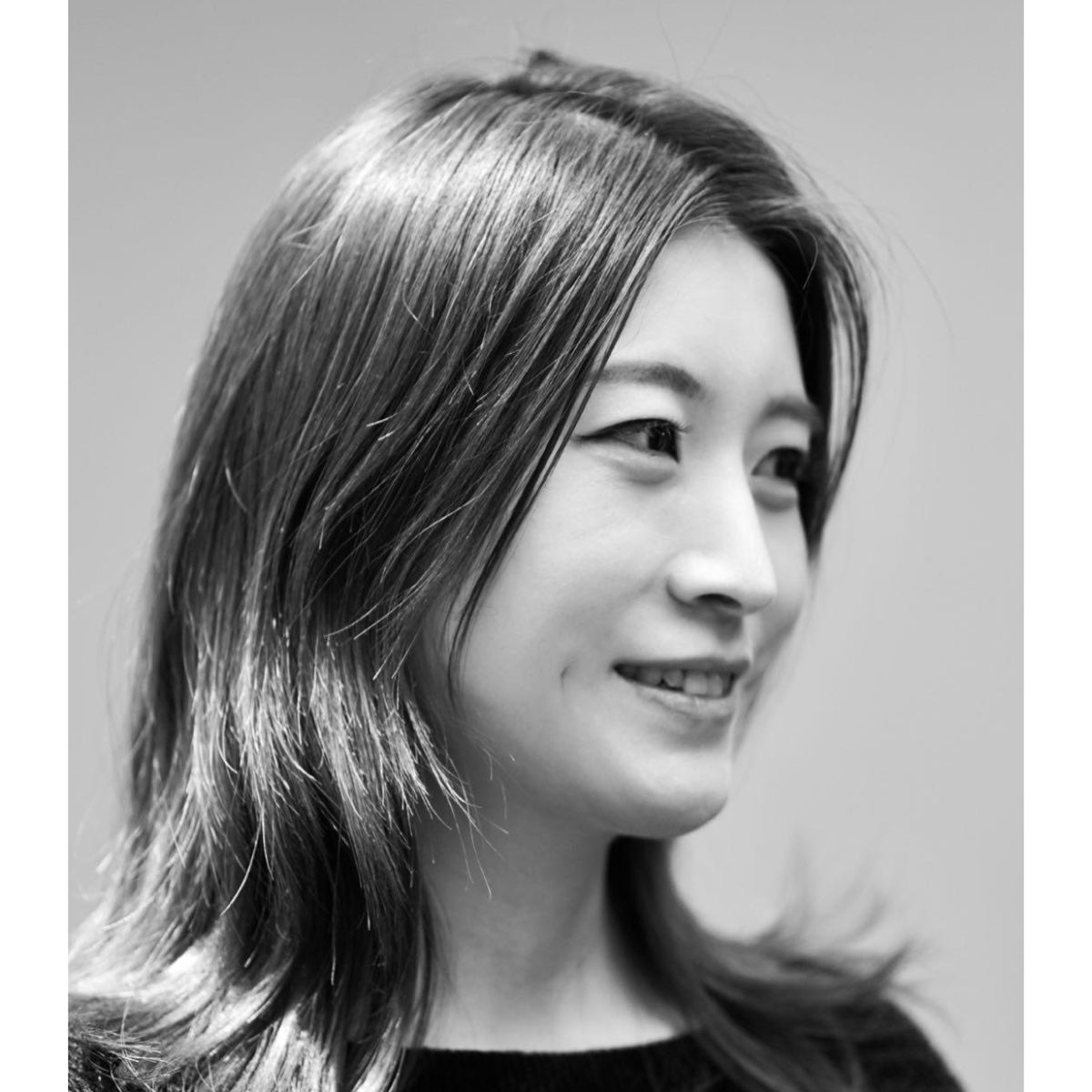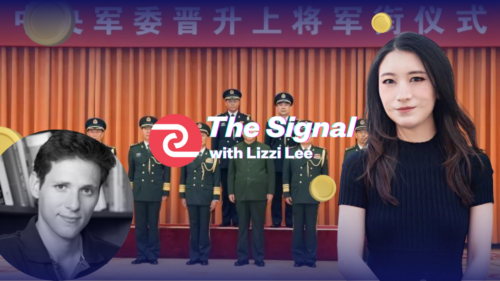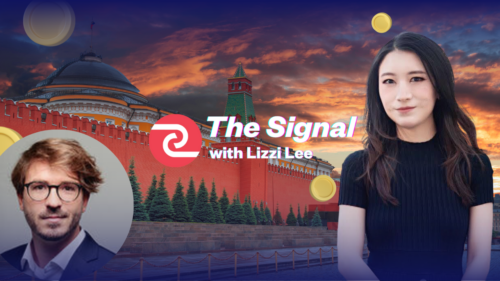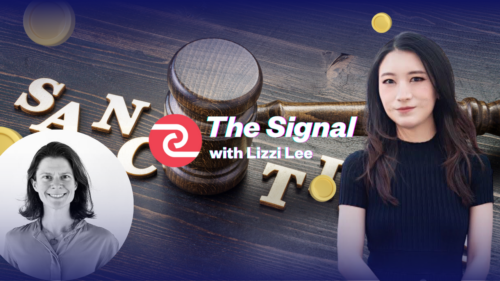Qin Gang: The Meteoric Rise and Sudden Fall of China’s Missing FM | The Signal with Lizzi Lee
This week on Live with Lizzi Lee, Pavel Slunkin, a visiting fellow at the European Council on Foreign Relations and a former Belarus diplomat, shares his thoughts on the mysterious absence and recent replacement of China’s former foreign minister Qín Gāng 秦刚, and what it was like working with him to prepare for a state visit of Xí Jìnpíng 习近平 to Belarus.

Below is a transcript of the video:
Lizzi Lee: Hello and welcome to this episode of Live with Lizzi Lee powered by The China Project. Joining me today is Mr. Pavel Slunkin, a visiting fellow at the European Council on Foreign Relations, a former Belarus diplomat. Thank you so much for joining me today.
Pavel Slunkin: Thank you for inviting me.
Lizzi: So, Pavel, on Twitter, you recently shared a captivating episode from your diplomatic career involving Qin Gang, the former Chinese foreign minister, during his time as head of the protocol department. I wonder if you can kindly provide a brief recap of that experience interacting with him?
Pavel: It was, I would say, maybe the toughest experience of my career, just because the protocol department of China is incredibly huge. And this means that plenty of people are responsible for small parts of the program. So when Chairman Xi Jinping was visiting, it meant that there was a preparatory team that dealt with the issues of protocol, security, information and so on and so forth. And the team of Belarus consisted only of 11 people, including all the bosses, while from the Chinese side, hundreds of people came. And this was not an easy experience in terms of preparation, just because we needed to start months before and we were continually repeating everything that had been negotiated on the visits all the time, repeating the same things.
And it seemed that for Chinese colleagues it was extremely important to have it confirmed every day on every level. So they usually come to find us on different levels, not only through their leadership, the Foreign Ministry or the leadership of the protocol department, but also on the level of younger diplomats who were engaged in the process. So when Xi Jinping came, we had a very hard first day and it ended with a private visit of his by the invitation of Lukashenko to the private house of Lukashenko. And it was late at night. And then Mr. Qin Gang decided that he needed to check again what was going to happen on the next day to see if they are ready for tomorrow. It was 2 a.m. at night and he decided that we should go and see the museum if it is ready for the visit. I said no because it was already so late and I couldn’t see how it would be possible. But my boss agreed. And then we came there and my colleagues all came. The deputy director of this museum and we had an excursion and it was kind of surreal because the Chinese protocol diplomats were counting steps on the museum staircase while asking me, what step will Charmian Xi touch step and when will the music turn on.
And obviously this is again, the difference of the protocols. We would never think of that. It doesn’t really matter for the European protocols, but it really mattered for my Chinese colleagues and it was not a point that was discussed before. So I just pointed to a random step and they noticed it in their notebooks saying that, okay, this should be the 39th or 41th step, and then the music will be turned on. Obviously, during the visit it didn’t happen, but it didn’t create any real serious problem. I think this is, again, their example of when you have so many people who are responsible for every element of the program, like five people, uh, welcoming the boss near the entrance, the five people who are escorting him to the place where he will be addressed in his speech. Then five more people in the hall, then more people in the airport and so on and so forth in every place of the program. There will be some people who are in charge of this small element of the program, and obviously it is extremely important to them to show their efficiency, to show that they do know the job. And that’s why I think that they were asking this question. And my personal experience, my personal meeting in the morning of the second day with Qin Gang… we had our breakfast together with the former foreign minister of China, Mr. Qin. Then again, we discussed what happened yesterday was going to happen tomorrow, and yet he looked like a boss who is not so happy to be approached by some younger colleagues.
I mean, this is part of their strict, hierarchical system. The bureaucratic system of China is a very conservative, a very traditional one, and diplomacy’s a part of it. So many people who were working for the embassy, who came together with the leader of China, they try to avoid direct communication with the chief of protocol just because they said that they were people between them. So sometimes it looks like people are afraid to complain. I don’t think that this is something related, that it relates to his personality, but probably to just this conservative and very strict way of communication between Chinese bureaucrats, between senior and younger people.
Lizzi: Fascinating. So looking back on your interactions with Qin Gang. Do you think any specific factors or decisions contributed to his rise within the Chinese ranks and what sets him apart as a diplomat and as a leader?
Pavel: Look, there is a very important disclaimer. We met only once. It was 80 years ago, and we had a very short period of time when I could observe him or where we could have short talks. So this is a very subjective observation, I would say. I mean, and this is my hypothesis, is that his cosmically fast career promotion was possible just because he was that close to the leader of China for a pretty long time when he headed the protocol department. And it gave him a special position, even in comparison to some senior colleagues who were heading maybe political departments or deputies of the foreign minister.
But they didn’t have this opportunity to whisper into the ear of Chairman Xi. And this was something that gives protocol to every boss. If you are always close to your boss, you have the chance to show your efficiency, your loyalty, and to talk to him. So I think that this is one of the explanations maybe of his speedy career growth.
But what happened next? I mean, this is a surprise I don’t know. And I don’t have any insight. I can only guess or speculate on that. But I think that this is, again, when you rise fast then you can fall fast.
Lizzi: Fantastic. As a seasoned former diplomat. Do you anticipate any significant repercussions on China’s foreign policy priorities due to this recent leadership change? As you know, Qin Gang has been replaced by his predecessor, Wang Yi.
Pavel: I would say that the difference would be the same. I don’t know if some Chinese colleagues or citizens or those who watch China much closer than I do, if they really notice some changes when Wang Yi was replaced by Qin Gang. I don’t. I mean, maybe there were some differences. I repeat that I don’t follow (China) much, but I don’t think that they were radical or big changes. So that the decisions on the main foreign policy issues are decided on the level of the leader of China, the leaders of the Communist Party and some of the senior guys around him.
So the position of foreign minister is an important one, but it’s not the one that would change the whole perception or the whole strategy of the foreign policy. So I would say that if there were changes from Qin Gang to Wang Yi, they would be the same that we observed when things changed from Wang Yi to Qin Gang just months ago. No real or big change.
And we see now they are purging the website, cleaning all their information about Qin Gang and all the feature articles from when he was minister. All the meetings he had. First they did it with the Chinese language. Now they are doing that with the English version of the website and the official representative of the Foreign Ministry avoids answering any of the questions that were asked. And there were around 20 questions at that briefing today in the Foreign Ministry, which shows that this is a very sensitive issue, uncomfortable, and they try to hide it. So I think that there is a necessity to bring Wang Yi back. It means that first Wang Yi’s position inside the Chinese system is very strong and he is thought to be one of the most or maybe the most experienced and trustworthy diplomats. And when something went wrong, they asked him to come back.
And yes, this means that the Chinese foreign policy under him is assessed by the leader of China as successful. The results that he had are sufficient and satisfactory for his boss, meaning Xi Jinping. So when there are problematic times, and probably something serious happens, so that you need to sack your foreign minister, and this time there are hints that something really serious happened, you just ask for the person who you can really trust to bring stability back to the Foreign Ministry. And that is the reason why Wang Yi was brought back. And now we should be asking, if you will, stay for a longer time, which is probable, I would say, or this would be a temporary position. And after that, they will be trying to find another person who will be heading the foreign ministry.






